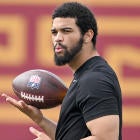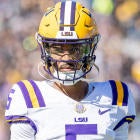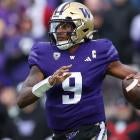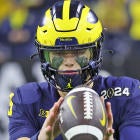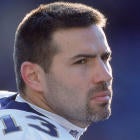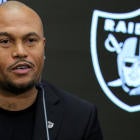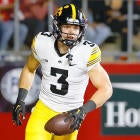Let's not try to pour butter on manure and call it mashed potatoes, folks. There's nothing special about the Dallas Cowboys special teams unit. As a matter of fact, to be more accurate, they're the worst you had the displeasure of watching in 2019. That's not speaking hyperbolically, either, because they were literally ranked 32nd in average yards per kick return (16.3), tied for last in number of kick returns greater than 20 yards (10), and ranked 26th in average yardage per punt return -- mustering a measly 5.7 yards per touch with their longest punt return having been just 15 yards.
For contrast, the Chicago Bears and Indianapolis Colts ranked first in kick returns and punt returns last season, respectively, with the former averaging 26.6 yards per kick return and the latter logging 17.4 yards per punt return. Those are numbers the Cowboys haven't seen in a very long time.
There were several reasons for such a poor output by special teams, and some simply couldn't be overcome by the good old fashioned "next man up" mantra. Many underestimate the value and impact of a player like safety Kavon Frazier -- arguably the best player on the unit and one of the best in the NFL in that phase of the game -- who went to injured reserve with a torn pectoral muscle in late September. Frazier's absence as the team's top-flight gunner on returns was immediately felt, but ultimately made worse when fellow special teams ace and safety Jeff Heath began battling a multitude of injuries.
Heath battled through to remain available for the defensive unit as best he could, but his injuries were so severe the Cowboys removed him from special teams duties on the back end of the season, leaving the special teams unit without their top two players for much of the 2019 season. The result was an abysmal showing over their 16-game stretch, and rookie speedster Tony Pollard exacerbated the issue with ill-timed mistakes that can only be attributed to rookie jitters.
After all, Pollard was a dynamo as a collegiate returner, twice named AAC Special Teams Player of the Year at Memphis. He took a massive step in the wrong direction under the tutelage of Keith O'Quinn, as did the unit as a whole, which led to talks of moving on from Quinn as special teams coordinator in 2019.
It didn't happen then, but it has now, with O'Quinn reassigned to the scouting department under Will McClay and new head coach Mike McCarthy stealing John "Bones" Fassel away from the Los Angeles Rams to serve as his replacement. And while Fassel won't point a finger (or eight, not counting his thumbs) at the causes for the Cowboys failures on special teams -- he's ready to take the wheel and turn the ship in the right direction.
Namely, away from the iceberg.
"I can't answer to [what the problems were]," he said in January. "I'm going into this with a blank slate for myself and for every person who has been on this team. I look forward to building it how I want to build it. What's happened here in the past, I can't speak of that.
"I look forward to teaching the players and getting them to be prideful in what they do."
With both Frazier and Heath entering unrestricted free agency, there's as much a chance they return to the Cowboys as there is they won't, and that makes things a bit more difficult for Fassel as he tries to rebuild the unit going forward. Those two contractual question marks aside, the good news is Fassel has been in this situation before. When he took the role as special teams coordinator for the then St. Louis Rams in 2012, there was much to improve upon, and only two years later the Rams had gone from being ranked 20th in the league in average yardage gained per kick return to No. 1 in that category, first in punts returned for touchdowns (2) and tied for second in average yardage gained per punt.
And while Pollard is the definitive returner going forward, the player who helped that 2014 Rams team reach those heights might ring a bell for Cowboys fans. It was none other than Tavon Austin, who delivered one of the team's two punt returns for a touchdown.
The other was running back Benny Cunningham (963 kick return yards that year), the two creating a lethal return tandem for Fassel, and that's something that can again be had in Dallas. Whether they choose to re-sign Austin or not, Fassel has a formula that's proven to do damage, and it extends beyond simply running back kicks. He's also the most aggressive special teams coordinator in the NFL, and you're hard-pressed to figure out if he's actually going to punt on fourth down or run a fake. Sometimes the latter works and other times it doesn't, but the guessing game is a chess match in and of itself.
So, for Fassel, it's about the totality of it all and not simply one or two items of concern. And, more than anything, it's about players on special teams feeling like they're more than just crash test dummies.
"A lot of the successes that come with special teams have to do with intangibles," Fassel said. "The personnel is a huge part of it, and the player development is a huge part of it. But when you can get a group of running backs, linebackers, tight ends, receivers and defensive backs to become cohesive and make it seem like those guys are valuable to a team -- that's probably the biggest component to being successful on special teams. Building chemistry and building pride and getting them to feel like they're important when a lot of times they're backups on offense or defense, but they're a starter on special teams.
"That's kind of my message to them: 'You're important to this football team.'"
That's saying the least, and especially for the Cowboys, a club that has only one punt return for a touchdown in the last six seasons and only three in the last nine. The last player to reach the end zone on a punt return was wide receiver Ryan Switzer as a rookie in 2017, but he was traded away for a now-released defensive lineman in Jihad Ward, after voicing concerns over his [mis]use by now-fired offensive coordinator Scott Linehan. Prior to Switzer, no Cowboy since Dwayne Harris reached the promised land on a punt, having done so once in 2012 and again in 2013 before being allowed to walk in free agency.
The Cowboys have only six touchdowns on punt returns since 2010, and two belong to Dez Bryant -- that very season.
Even more egregious (if you can believe that's possible) is how they've fared with kick returns. Granted, the NFL has become stingy with its rule changes in 2016 and 2018 regarding those, but the Cowboys are still so far behind the curve in this category they're nearly standing still. They only two touchdowns since as far back as the 2003 season, when wide receiver Randal Williams delivered one for them and running back Felix Jones landed another 2008, marking an 11-year drought in the category and leaving the Cowboys with a touchdown-to-kick return ratio of only 0.12 -- a number far, far below league average.
There's nowhere to go but up for the special teams unit in Dallas, and although Fassel could simply deploy his proven blueprint in Dallas and be instantly successful, he's looking to improve upon it and make it that much more difficult to stop. Much like McCarthy's evolution toward the use of analytics and the mix of experience and youthful ideas on his coaching staff, Fassel wants to make sure he never becomes complacent or stagnant.
"I'm starting to dive into a little reinvention of myself, whether it's schematics or progression of technique install," he said. "When I come to a new team, I say, 'What have I done in the past that I liked, and what have I done in the past that I can do better?' It's a chance for me with a new team to just reinvent myself and think about all the things I've done and how I can do it better."
If that kind of thinking had existed in the Jason Garrett regime, the Cowboys would likely be far better at utilizing special teams to change the outcome of games, and kicker Brett Maher would probably not have been given a chance to cost them wins. By the time Maher was sent packing, the damage had already been done, but it was all par for the course at that point for the unit. Fassel wants to change the culture first within the personnel, and then use that to propel an about-face regarding production.
With "Bones" now in Dallas, the rest of the body -- i.e., offense and defense -- can form around a stronger special teams skeleton.














